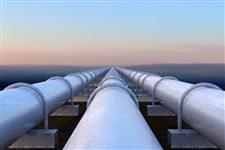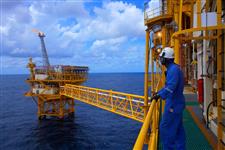
Why are Gas Prices Climbing in Canada While Oil Plummets
Posted 24/08/2015 01:00
It appears there’s some truth to that hunch you had the last time you were filling up, according to petroleum industry experts.
Gas prices have marched higher across Canada this summer even as oil prices have hit multi-year lows, causing a jarring disconnect between crude and gasoline, two commodities that typically move up and down in price in general unison. At least historically.
Prices at the pump are reflecting to some degree the precipitous drop in oil, with the average cost of a litre down 13 per cent compared to last August. But much of the windfall in extra cash economists said would benefit consumers this year is being reclaimed by fuel expenses.
Experts Global News spoke to offered a number of reasons why gas remains relatively expensive amid a glut of cheap oil – high demand from North American motorists; a consumer shift to bigger vehicles; overstretched refineries; as well as the loonie’s sharp decline in recent months.
Another major contributor, according to experts, has been upward pressure on pump prices from big oil firms.
“Integrated” oil companies who own the whole value chain — from oil production to refinement into gas to retail distribution through owned or franchised stations – appear to be hitting consumers at the pump to help offset the revenue hit they’re taking from $40 oil (a 58 per cent plunge from a year ago).
“The consumer at the street level is subsidizing the oil companies because [oil firms] are getting close to the bottom of the barrel on the [crude] side,” Roger McKnight, a petroleum market expert at En-Pro International Inc., said.
“That’s why prices at the pump don’t seem to reflect what’s happening with the price of crude,” he said.
“The consumer at the street level is subsidizing the oil companies because [oil firms] are getting close to the bottom of the barrel on the [crude] side,” Roger McKnight, a petroleum market expert at En-Pro International Inc., said.
“That’s why prices at the pump don’t seem to reflect what’s happening with the price of crude,” he said.
Spokespeople for Imperial Oil and Suncor directed questions about industry pricing practices to Canadian Fuels Association, an industry group. Shell did not respond to a request for comment.
Comment from the industry group wasn’t immediately available.
Fed up
Regulators at the Competition Bureau are mandated to police retail pump prices under the Competition Act, which “includes provisions against price-fixing [and] price maintenance,” the bureau’s website says.
The federal regulatory body has fined franchisees as well as oil companies for engaging in alleged price-fixing schemes in the past (a list of those fines can be found here).
A criminal case is currently before the courts that alleges Irving Oil and its Quebec manager “fixed” retail prices at stations in Victoriaville, Thetford Mines and Sherbrooke.
It isn’t clear whether the Competition Bureau is looking into the widening discrepancy in oil and Canadian gas prices.
“[T]he Bureau is obliged by law to conduct its investigations confidentially, so we cannot discuss the details of ongoing investigations, nor confirm whether the Bureau has an investigation in this area,” Marcus Callaghan, a spokesperson, said in an email.
The impact on consumers has been more an annoyance than meaningful financial drag so far, experts say. But if economic conditions and employment levels deteriorate through the fall, climbing gas prices could become a bigger issue.
The CAC’s Cran said a deeper probe into industry pricing practices is necessary, but his organization doesn’t have the money to fund a study. Besides, previous attempts from consumer groups haven’t shed much light, he said.
Nevertheless, the consumer association is meeting with bureau officials in early November where the issue is on the agenda.
“I suspect they’re as fed up as we are,” Cran said.
Source: globalnews.ca
Please leave comments and feedback below








